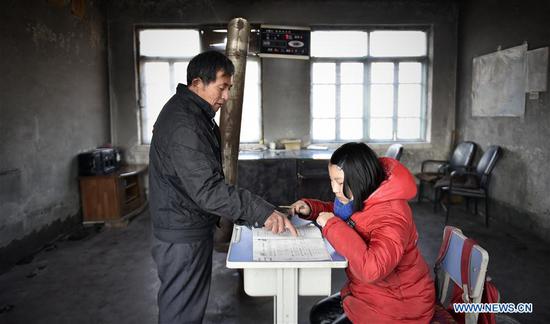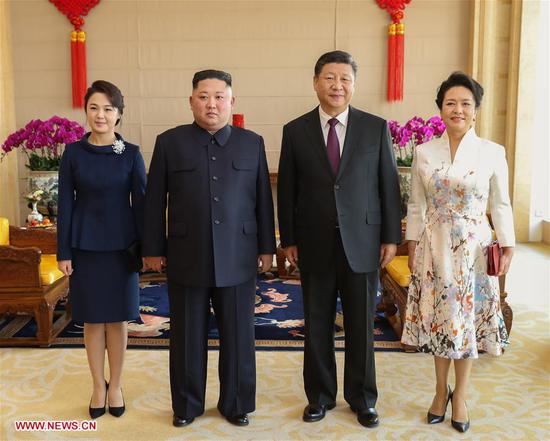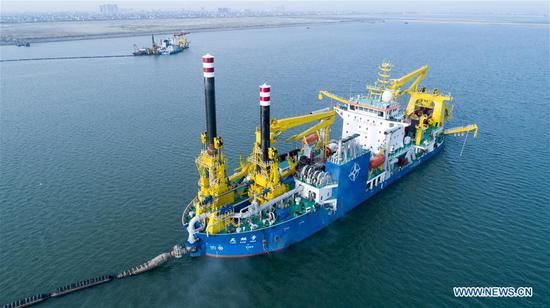Storms on the horizon
Although the meeting in Poland achieved what it set out to achieve, a small group of countries led by the US attempted to prevent the conference from fully welcoming the IPCC report and technical difficulties still exist, including how to scale up commitments on cutting emissions and how to provide finance to poor developing countries accordingly.
Decades-long disputes over emissions allocation among different countries have divided the world into two groups.
Jouni Paavola, a professor of environmental social science at University of Leeds in Britain, said in a research paper that developed economies have invested in infrastructure and energy-intensive technologies, which make carbon emission reduction time-consuming and expensive.
Meanwhile, multiple-sources of income enable rich countries to avoid the adverse consequences of global warming, as well as give them the ability to recover from them.
On the contrary, developing countries, especially the least developed ones, have contributed little to climate change but their future development requires increasing energy use and carbon emissions.
Poorer countries are also more vulnerable to extreme weather events. According to a research paper published in 2005, natural disasters such as hurricanes could cause low-income countries to lose up to 10 percent of their GDP.
This situation has resulted in financial support being brought to the negotiating table. Under the guidelines of the Paris Agreement, developed economies committed to funding a total of $100 billion to help pull poor countries out of their climate predicament every year before 2025.
According to accounting and recording of historical carbon emissions, the US should be the largest source of funding, said Li Zheng, executive vice-president of the Institute of Climate Change and Sustainable Development at Tsinghua University.
"The country's withdrawal from the Paris deal, however, would not only terminate its own funding obligations, but also hamper other developed countries from lending a hand," he added.
The future is unwritten
COP24 President Michal Kurtyka speaks during a final session of the COP24 UN Climate Change Conference 2018 in Katowice, Poland, Dec 15, 2018. [Photo/Agencies]
So the crux of the climate challenge, according to those closely following developments, is straightforward: The diversity of the global community in terms of needs and wants makes it difficult to agree on how to allocate carbon emissions credits fairly.
Some countries have asked for more flexibility on cutting emissions, with Brazil pushing for a weaker set of rules on carbon trading. However, opposition from other countries led the discussion to an impasse and just like other technical challenges, negotiators postponed addressing it until next year.
The US withdrawal also cast a shadow over the fulfillment of cutting emissions as well as implementing the Paris deal in 2020. But the declining influence of the world's largest economy on climate change also means more countries should strengthen their efforts on the high-profile issue, which, as Li noted, provides China with an opportunity to set a good example.
As the world's biggest investor and innovator in renewable industries, China was among the first countries to sign the Paris Agreement, taking leadership in the fight against global warming.
"Playing a leading role on climate change, China has ramped up its commitment to cut emissions. And China, in the future, would direct negotiations under its philosophy of fairness and cooperation," said Li.
Some observers suggest a more optimistic view on the challenge posed by the US federal government's reluctance.
Liu Shuang, director of the Low Carbon Economic Growth Program at Energy Foundation China, said that the US withdrawal would not hamper the country's state governments and business organizations to "go green". For example, during the Global Climate Action Summit held in San Francisco in September, a group of 29 organizations announced a commitment of $4 billion to combat climate change over the next five years. Similar efforts are being launched locally across America.
Despite the politics of coordinating disparate groups to achieve a necessary collective action, large companies should - and many are - taking action against global warming. This includes oil companies and other fossil fuel producers.
"Companies should be more responsible and creative, developing and deploying advanced green technologies," Ma of the Beijing NGO said.
Taken all together, climate watchers said, these combined efforts could have a profound impact when it comes to reversing the planet's warming. If not, they warn, more disasters await.
Who knows, perhaps Japan will be able to pick a more positive symbol in the future.


















































